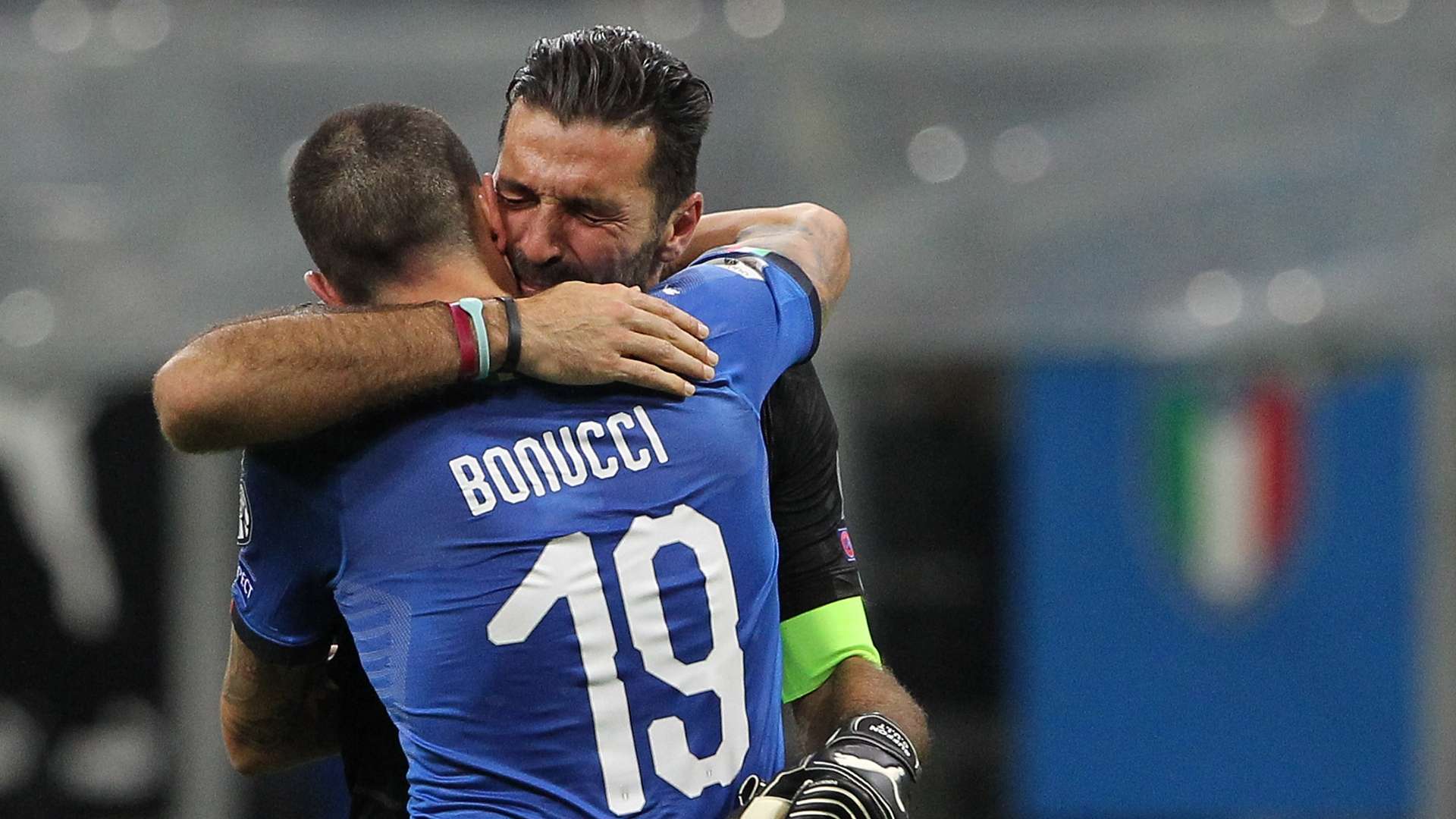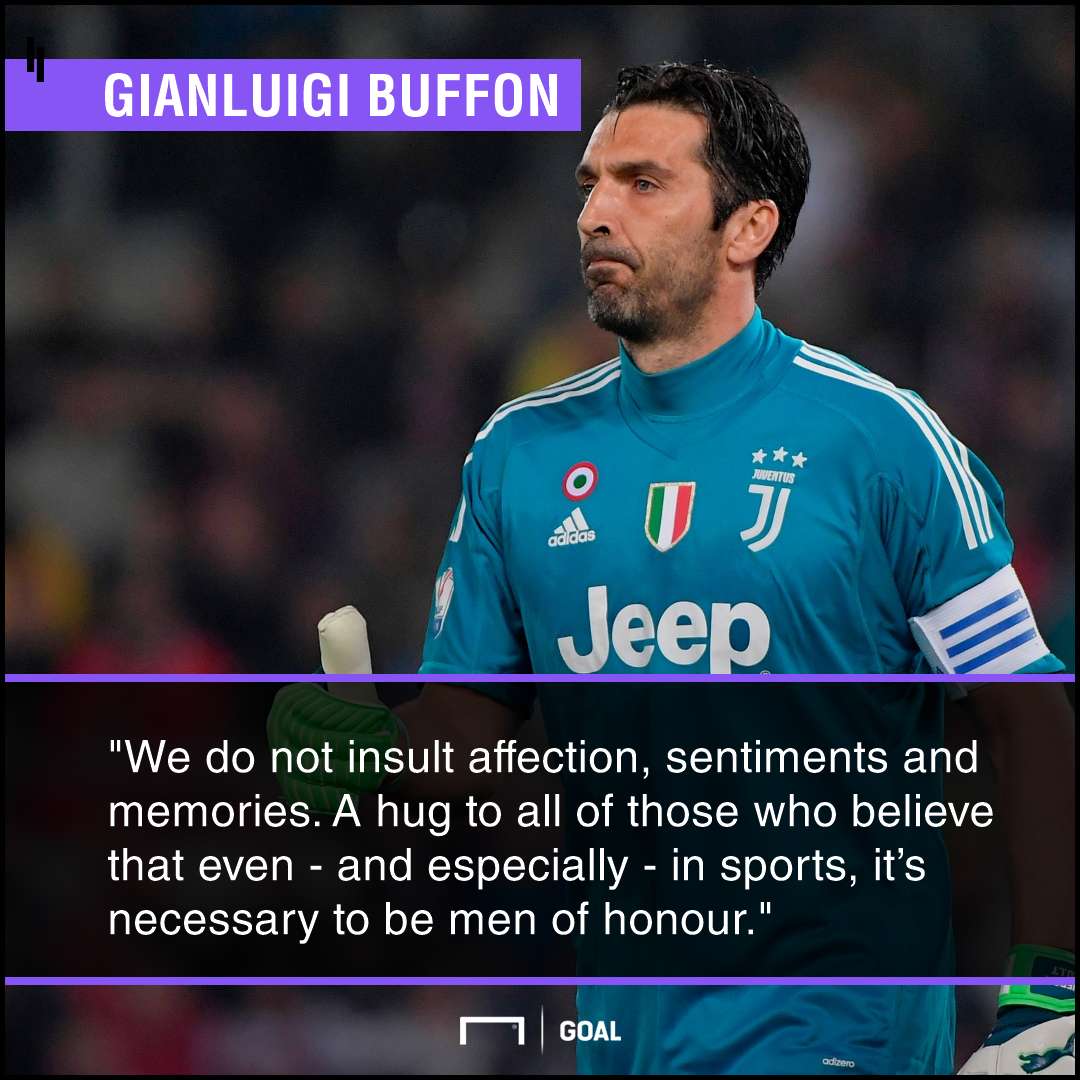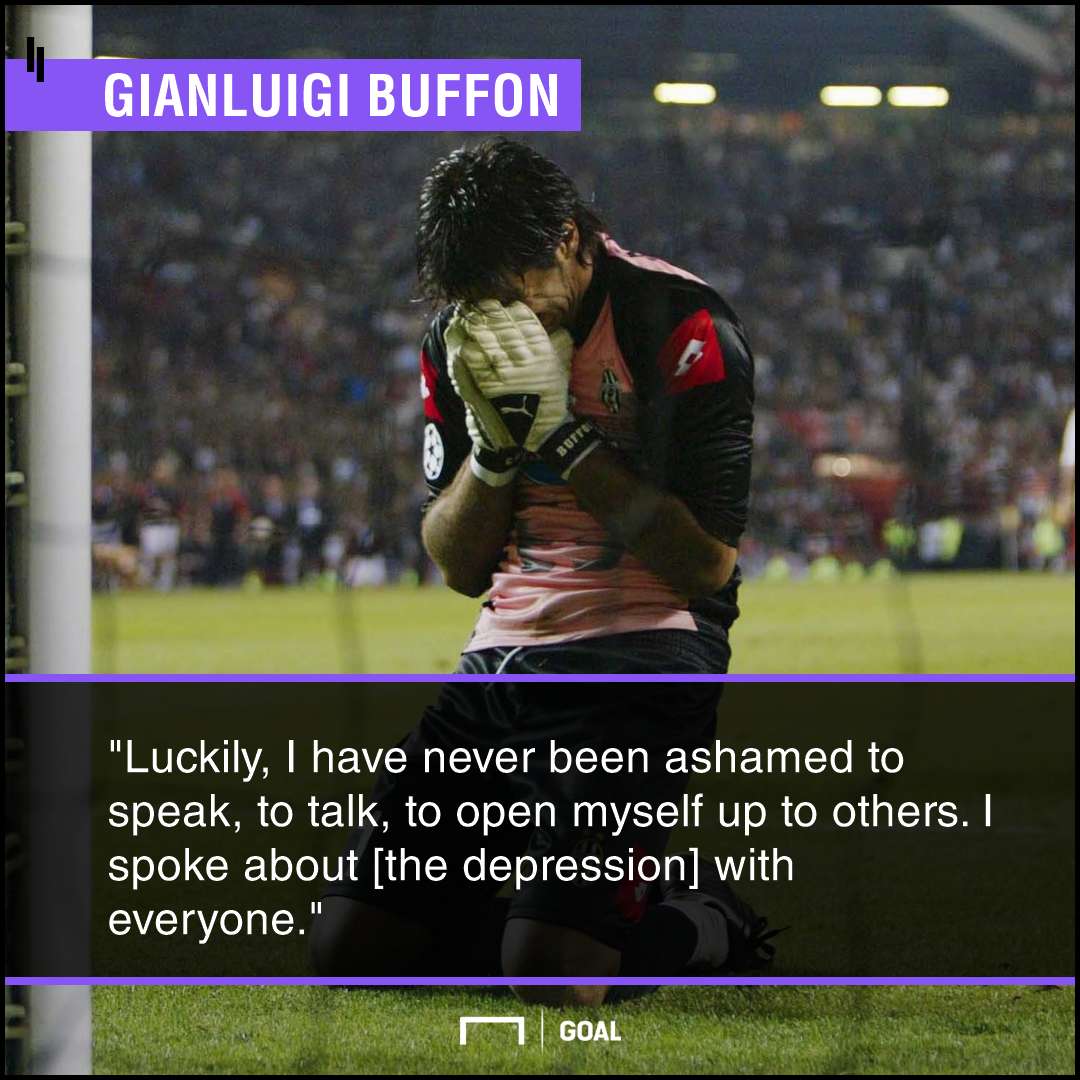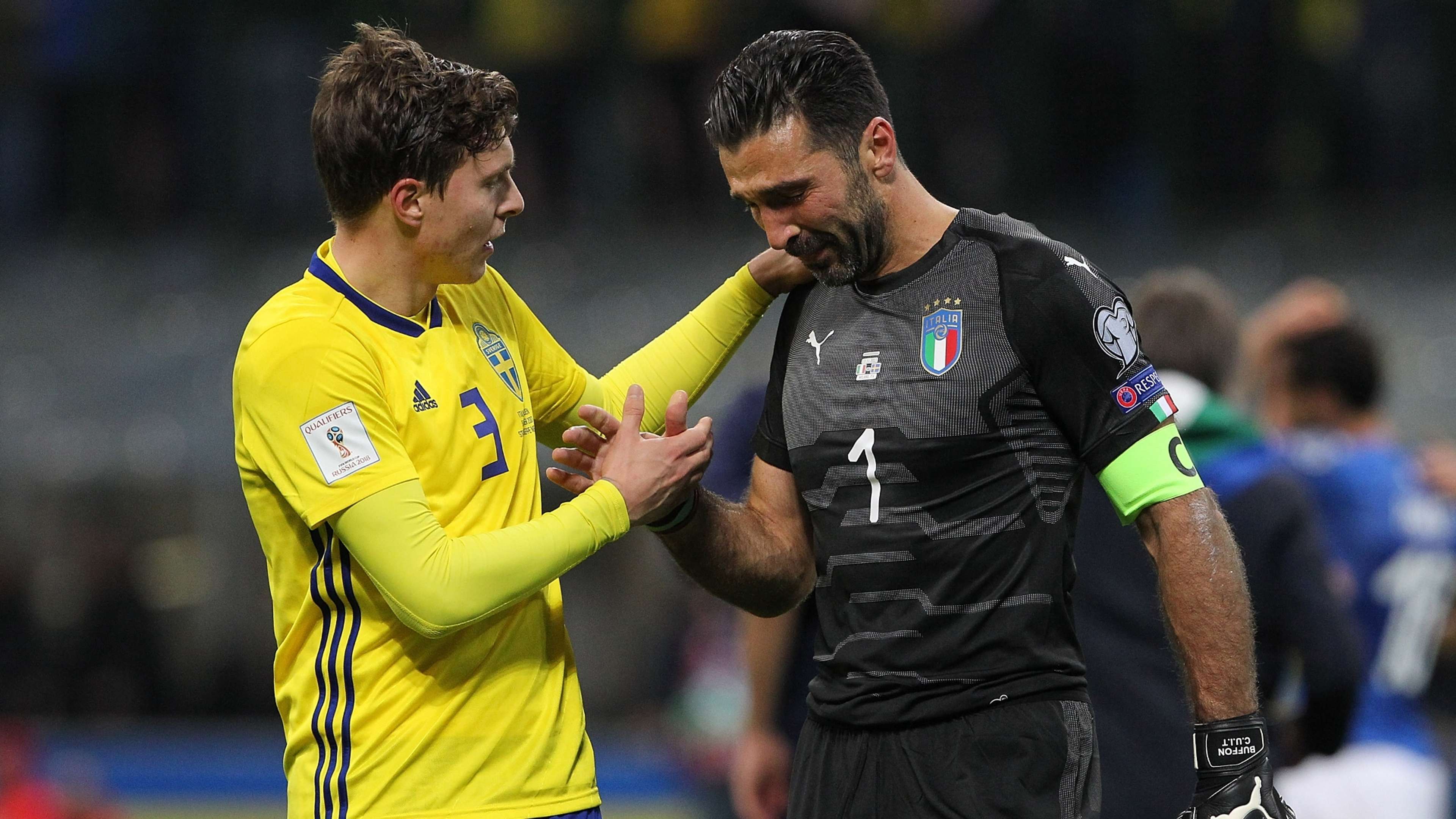Legendary Liverpool boss Bill Shankly memorably mused, "Some people believe football is a matter of life and death. I am very disappointed with that attitude. I can assure you that it is much, much more important than that."
It's not, of course; it just feels like that sometimes, for some people - be it a player, coach or supporter. Football matters because it can become a huge part of a person's life; a form of expression.
It's difficult to justify, to explain or put into words. But Gigi Buffon has regularly come closer than most.
"I cry often and I cry alone. Crying helps - it frees you and makes you feel human," he revealed during an episode of the Netflix series 'First Team: Juventus'.
"But I never cry for football. I can be touched but [if I cry] it's not about the defeat itself. It's something more complex and romantic than that."
When Buffon broke down in tears after Italy's World Cup play-off defeat by Sweden, he insisted that it was not because his team had lost a football match, or that he had been denied a swansong in Russia. He cried because what qualification would have meant to his nation.
"I'm not sorry for myself but all of Italian football," he said, after admirably agreeing to face the cameras immediately after the full-time whistle had blown. "We failed at something which also means something on a social level."
Even before the second leg at San Siro, Buffon had alluded to football's potential to bring people together: “I would love for those who come to the stadium tomorrow to take off their club colours and all wear the Azzurri jersey that unites us all."
 Getty Images
Getty Images
Yet when some elected to boo and whistle the Swedish national anthem, it was Buffon who pleaded with them to refrain.
When he learned that the road up to Superga, scene of the airplane crash that had claimed the lives of the 'Grande Torino' side of the 1940s, had been desecrated with graffiti, it was Buffon who tackled reports that Juventus fans might have been responsible.
"If we think about and really believe in what ‘Lo stile Juve’ ('The Juve style') represents, and the absolute values which characterise us, it’s inconceivable to traduce and violate the feelings of those who have suffered and are still suffering," he wrote on his Facebook page.
"We do not insult affection, sentiments and memories.
"A hug to all of those who believe that even - and especially - in sports, it’s necessary to be men of honour."

Buffon has long tried to be a man of honour. It hasn't always been easy. As a boy thrown into a world of adults at just 17, he regularly rebelled against authority and, by his own admission, occasionally acted irresponsibly.
However, in now characteristic fashion, he has always faced criticism head on, addressing the most controversial episodes in his past, such as allegations of fascist leanings and gambling, in a chapter of his autobiography entitled, 'Black stories: errors, mistakes and the naivety of a goalkeeper'.
But, just like any good goalkeeper, he always strove to learn from his mistakes. "If I did something stupid, I never did it again," he wrote in 'Numero Uno'.
Buffon understood better than most that there were numerous pitfalls in football. He discovered that fortune and fame don't equate to happiness. 'Money isn't everything' was the phrase that kept spinning around in his head as he sat in the dressing room after Italy's Euro 2004 draw with Denmark with a smile on his face, having realised that it's okay for a wealthy person to admit to being unhappy.
At the time, it appeared he had it all: the most expensive goalkeeper in the world, first-choice for both Juventus and Italy. Yet he wasn't happy. He hadn't been for the preceding six months.
His legs would suddenly start shaking for no apparent reason and he felt as if his mind was not his own, as he remained gripped by a "continuous malaise" that he could not explain.
So, when he saw Alvaro Morata struggling during the Spaniard's time in Turin, he reached out to his younger team-mate. He knew that Morata needed somebody to talk to, having relied heavily on the help of family and friends - as well as a psychologist - to overcome his own mental issues.
"Luckily, although I was used to counting on my own strength above all else, I have never been ashamed to speak, to talk, to open myself up to others," he wrote of his darkest days.
"I spoke about [the depression] with everyone. With my family, especially, with the directors, with the club doctor, Riccardo Agricola, and there were others who helped me too."
 Getty Images/Goal
Getty Images/Goal
Ever since, he has never been afraid to speak out, to express himself.
This, after all, is a man who, to commemorate the fact that he had just set a new Serie A record for minutes without conceding, penned a letter to the goal posts he has been protecting since he was 12 years old before then dedicating a sentence of heartfelt praise to each and every single member of the Juventus squad.
Of course, his emotions got the better of him during his recent tirade against referee Michael Oliver but this was just another expression of feeling from a passionate character, who has now apologised for his outburst.
“I think that I am 80 per cent a very rational person, a person steered by reason,” he told Eight By Eight last year. “The other 20% - which would have been more like 70% when I was younger - is craziness.
"I think that’s part of every person’s makeup. For some people it’s more, and for some a little less."
And there's the rub. Buffon is not perfect. He is no saint. Nor is he Superman. He remains fundamentally human. He makes mistakes. He tries to learn from them. He usually returns stronger than ever before.
Even now, at 40 years of age, he is being tempted by the prospect of one last challenge. He admitted at Thursday's press conference that he had decided 15 days ago to retire at the end of the season but his head has now been turned by intriguing offers from outside Italy. He could, therefore, continue for another season.
All we know for sure is that, on Saturday, he will play his final game in a Juventus shirt. The Bianconeri faithful will miss the saves and the celebrations. But they will not only miss Gigi the goalkeeper, they will miss Gigi the man; a flawed but fascinating character.
So, while Buffon's departure will hardly be a matter of life and death, there will be tears in Turin on Sunday when he makes his last appearance there. And rightly so.
It's not just that a great footballer is leaving. It's something more complex and romantic than that.
